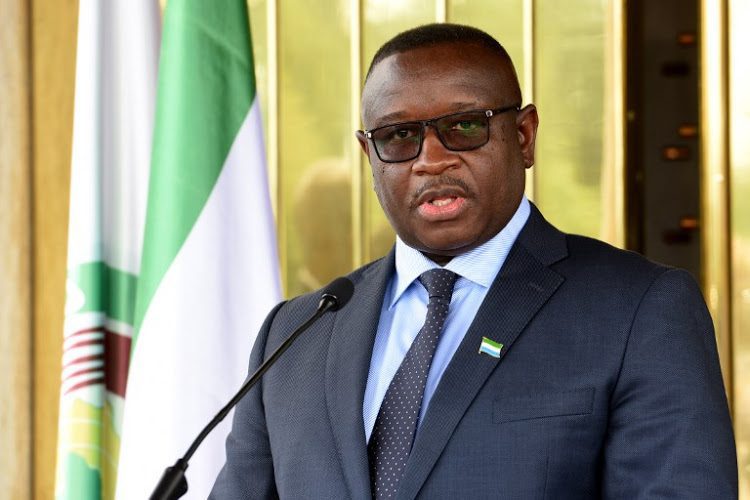Sierra Leone’s President Julius Maada Bio has hailed people living with HIV/AIDS for their courage and dedication to the fight against the global pandemic.
Bio, as part of commemoration of World AIDS Day 2019, said those who were infected and receiving free treatment where the reason the prevalent rate of the virus has been stabilized.
“Because of your example, we have stabilized HIV prevalence rate, reduced new infection rate, and increase the number of Sierra Leoneans on treatment,” the president said in a recorded message to audience at the national event on Sunday, December 1, in Freetown, This year’s commemoration is the 31st edition since the world started remembering the day as part of efforts to raise awareness about its impacts and efforts to contain it.
The National AIDS Secretariat (NAS) organized the event, alongside its partners that include people living with the virus, UN agencies and other civil society groups campaigning for AIDS free world.
The event held at the forecourt of the main ministerial building in Freetown – Youyi Building – was preceded by a march past across the street of the capital city.
Various speakers, from government to UN to CSOs, all recommitted to the fight against the virus.
In Sierra Leone, the President is the chairperson of the National AIDS Commission, under which the NAS falls.
In his keynote address, Bio said as indication of his government’s commitment to eradicate HIV, it had declared the disease a public health concern. He also promised, in line with his government’s
priority to provide access to quality and affordable healthcare for every citizen, investment in building a resilient health care system.
He went on to say that the government would provide equitable and free HIV services to every Sierra Leone “in a stigma and discrimination free environment.”
This year’s World AIDS Day was commemorated on the theme: “Community Makes the Difference to End AIDS by 2030.” Latest Statistics from the NAS and UN agencies show that new infection
rate of HIV continues to decline in the country. As of 2018, 4, 100 new cases were recorded, down from 4, 700 new cases in 2015.
KC/abj/APA


